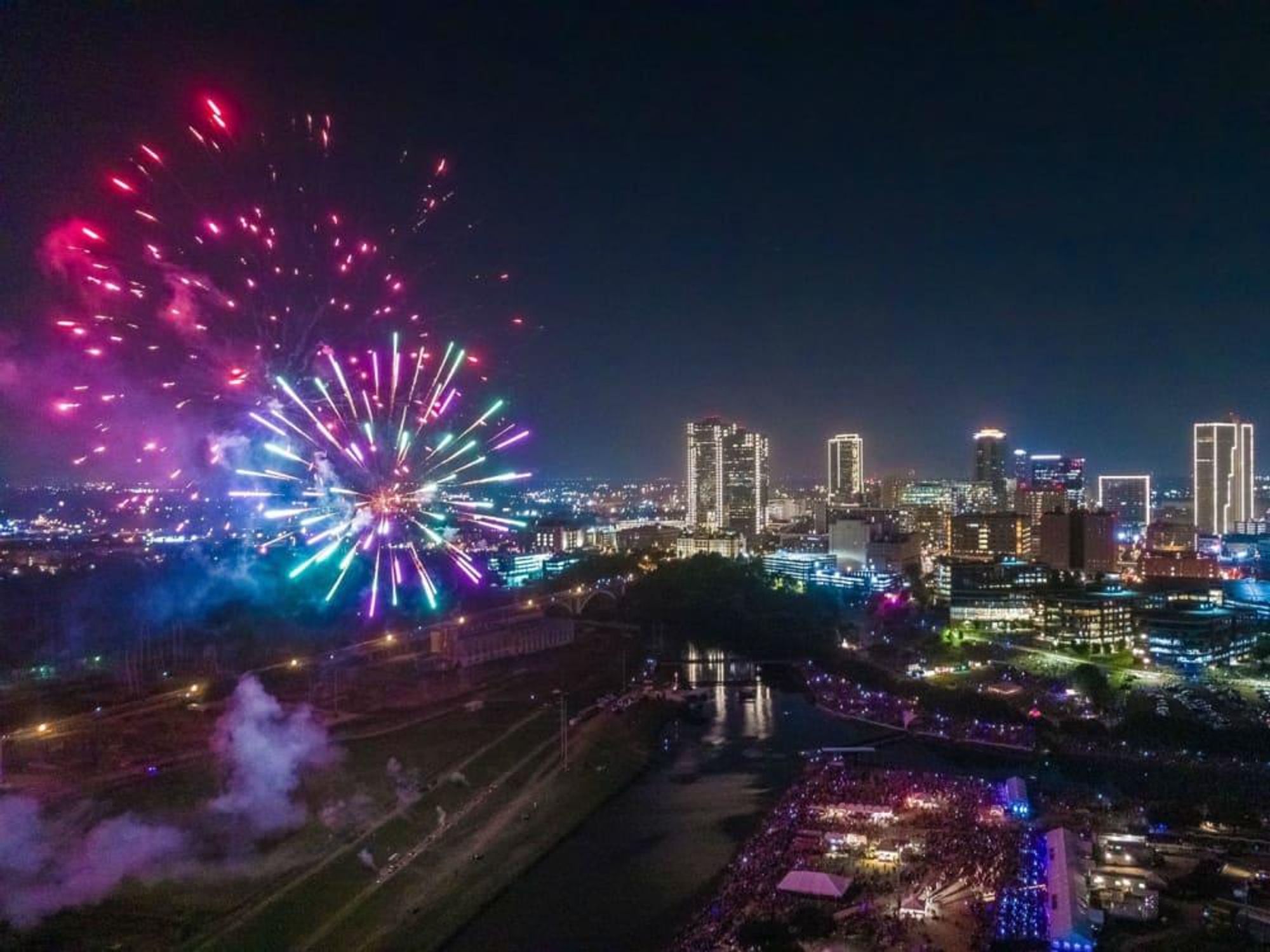Star-spangled atmosphere
Fort Worth skyrockets to No. 1 in ranking of cities with clear 4th of July skies

Fort Worth is pretty explosive when it comes to the ability to clearly see Fourth of July fireworks displays.
A study from Australian price-shopping platform Compare The Market shows Fort Worth ranks first among 30 major U.S. cities for the least amount of light pollution. Fort Worth had the lowest light pollution factor (47.15) in 2021 among the 30 cities.
Elsewhere in Texas, Austin ranked sixth (light pollution factor of 117.17), El Paso came in at No. 16 (186.49), San Antonio landed at No. 17 (201.98), Dallas ranked 18th (203.76), and Houston captured the No. 21 spot (211.25).
Detroit had the highest light pollution factor (417.13) of the 30 cities.
“There’s nothing wrong with backyard sparklers and poppers, but if you want to see the country’s biggest, brightest, and most spectacular fireworks displays, you have to find the places with the clearest skies!” Compare The Market declares.
Fort Worth-area residents will be able to put the study’s findings to the test July 4 at Panther Island Pavilion along the Trinity River. The city’s fireworks show, Fort Worth's Fourth — billed as the biggest in North Texas — will begin at 9:30 pm.
According to the International Dark-Sky Association, 99 percent of Americans are subjected to light pollution.
“Light pollution is a side effect of industrial civilization. Its sources include building exterior and interior lighting, advertising, commercial properties, offices, factories, streetlights, and illuminated sporting venues,” the association says.
Outside major urban areas in Texas, some spots that lack light pollution have become tourist destinations. One of the state’s most prominent dark-sky destinations is the University of Texas McDonald Observatory, situated in the Davis Mountains of West Texas.
“Texas has many tourist attractions, but one of the most valuable is right above our heads every night. The Texas sky, where the stars are still big and bright, is drawing more and more visitors to dark sky areas,” the association’s Texas chapter says.
“As skies grow more light polluted in our cities, Texans and non-Texans alike find themselves just wanting a night under the stars away from the lights, and parents want to show their children the Milky Way and stars like they remember from their youth.”

 Guests at Bubbles & Bites. Photo courtesy of FWSSR
Guests at Bubbles & Bites. Photo courtesy of FWSSR